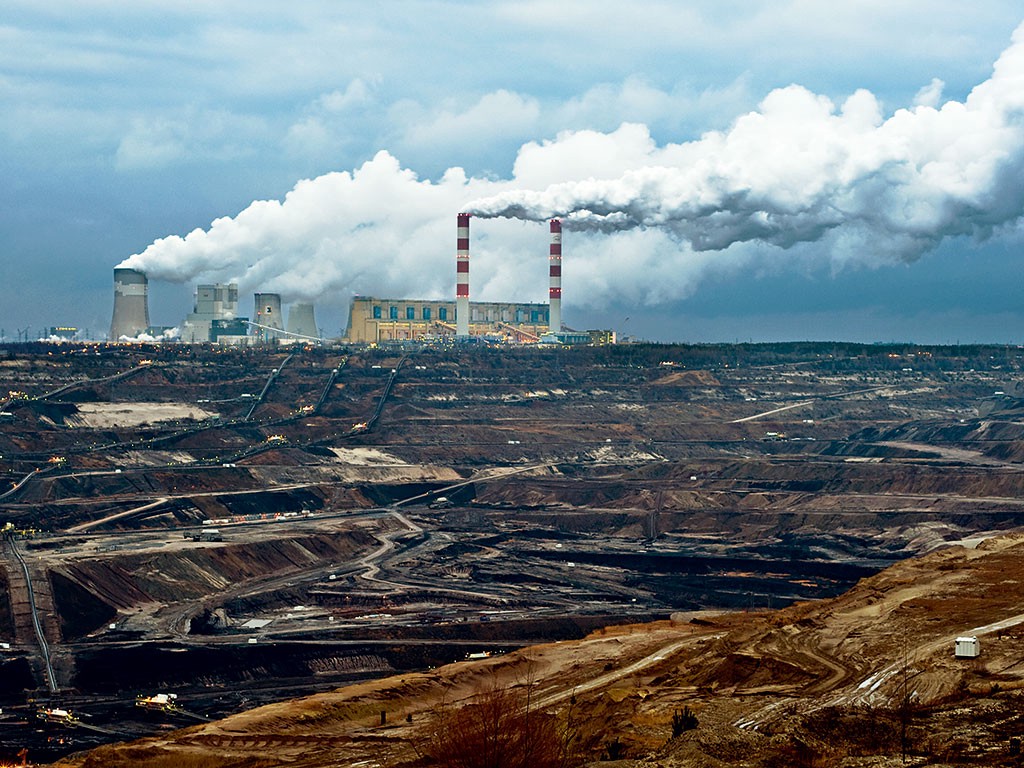PARIS — The announcements and pronouncements at French President Emmanuel Macron’s One Planet summit may leave the impression that coal is dead. But it’s too early to count the King out just yet.
At Tuesday’s main event, French insurance giant AXA announced it would continue its march away from coal-related investments, resulting in 2.4 billion euro (around $2.85 billion) in divestments and a moratorium on new coal investments. The Dutch banker ING said Tuesday it would not take on new clients that took in more than 10% of their revenue from coal. Lloyd’s CEO said the insurer would exclude coal-only companies from the main mutual fund that backs up its policies.
China, the world’s largest polluter, announced plans to create what Chinese negotiator Xie Zhenhua said would become the world’s largest single carbon trading market. That, he said, will make Chinese coal generation “more expensive … (and) less attractive.” Canada and the World Bank jointly announced an initiative to “accelerate developing countries’ transition away from traditional coal-fired electricity” and toward clean energy.
Macron called the summit to mark the two-year anniversary of the landmark Paris Agreement and bolster the momentum of climate talks. Macron was joined by heads of government from Austria, Iceland, Mexico, the Netherlands, Norway, Portugal, Spain, Sweden, Switzerland, the U.K. and other countries, as well more than 60 minister-level representatives.
One Planet: Macron mobilizes capital for climate action, with a French accent
Former New York Mayor Michael Bloomberg, in Paris to promote the Task Force on Climate-related Financial Disclosures, which he chairs, said most of the estimated 1,600 coal-related projects in development worldwide would never be finished.
“Most of those project will never be built,” Bloomberg said. “Many will remain in development, and many will be phased out.”
But coal may be around longer than climate activists would like.
Absent from the Paris talks were high-level federal representatives from Poland, Europe’s biggest producer of coal. Polane will next year become the first country to preside over the annual United Nations climate summit three times. In the past, Polish officials have said more effort should be spent on making coal cleaner rather than in phasing it out.
Poland was a strong advocate for the three-year extension (through 2020) voted by the European Parliament on Tuesday to allow the European Fund for Strategic Investment (EFSI) to continue to make fossil-fuel investments. (France was among the European Union states pushing for the EFSI to be replaced.) A report from Bankwatch released in November showed that the EFSI investments in energy have so far spent 1.8 billion euro (around $2.15 billion) on fossil fuels, nearly as much as the 2.0 billion euro (around $2.4 billion) spent on renewable energy.
In the U.S., President Donald Trump has set himself up as a coal advocate. There were reports Tuesday that the White House is lobbying Australia, India, and Japan on the value on long-term value of coal and natural gas.
Some economists say that in some parts of the developing world fossil fuels, including coal, will remain cheaper than renewable energy for the foreseeable future, making a full transition to green power much less likely.
“Despite what we are hearing here, I don’t think we’ll see the end of coal during my lifetime,” said a veteran European climate negotiator (in his mid-40s), speaking on the condition of anonymity.
According to most estimates worldwide coal use peaked in 2014 or 2015 at around 3.8 billion tons per year, pushed mostly by dramatically rising consumption in the Asia-Pacific region. In recent years, coal use has declined slightly — but remains higher than it was a decade ago.











